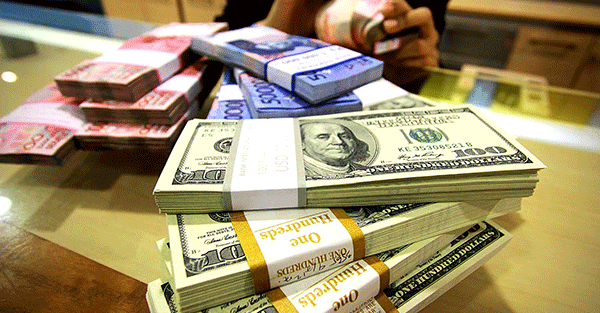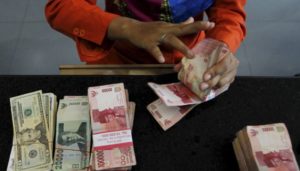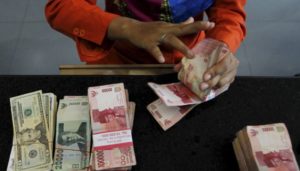Jakarta, MINA — Indonesia’s rupiah slid to a two-decade low as the market meltdown in Argentina and Turkey raises scrutiny on other emerging markets with current account deficits, investing.com reported.
The rupiah fell to 14,750 per dollar, the weakest level since the 1998 Asian financial crisis. The nation’s benchmark bond yields advanced 5 basis points to 8.06 percent.
“The rupiah’s underperformance relative to the rest of emerging markets stems from Indonesia’s weak external payments position, especially the current account deficit,” said Prakash Sakpal, Singapore-based economist at ING Groep (AS:INGA) NV. Still, “things now are far different than 20 years ago when the crisis originated in Asia and rupiah’s external creditworthiness was much weaker.”
As investors dumped Turkish and Argentinian assets, countries with large current-account deficits such as Indonesia and India have also seen their currencies and bonds come under selling pressure. The rout in the Argentinian peso and Turkish lira end the recent stability bought by Bank Indonesia’s four rate hikes since mid-May, which has led to a return of foreign funds.
Also Read: Saudi Arabia Wins Bid to Host World Expo 2030
Investors including Western Asset Management Co. said recently there were buying opportunities in Indonesian bonds, given the sound domestic fundamentals and a proactive central bank. With foreigners owning almost 40 percent of the nation’s bonds, Indonesia is particularly vulnerable to jitters in global markets.
The rupiah is down 7.8 percent this year, and first came under pressure from a resurgent greenback and climbing U.S. Treasury yields.
Despite the rupiah’s selloff, investors can take heart in “some underlying improvement in the Indonesian economy” since the 1998 Asian crisis, said Michael Every, head of financial markets research for Rabobank Group in Hong Kong. “I don’t think there’s as much downside risk to the rupiah until we see China devalues its currency significantly,” he said.
Still, the slide in the rupiah has added to Indonesia’s current-account deficit. The shortfall increased to $8 billion in the second quarter, or 3 percent of gross domestic product, from $5.7 billion in the previous three months, according to the latest central bank data. OT/RS5/RS1)
Also Read: 148 Products from Indonesia Promoted at Sarawat Superstore Jeddah
Mi’raj Islamic News Agency (MINA)


































 Mina Indonesia
Mina Indonesia Mina Arabic
Mina Arabic